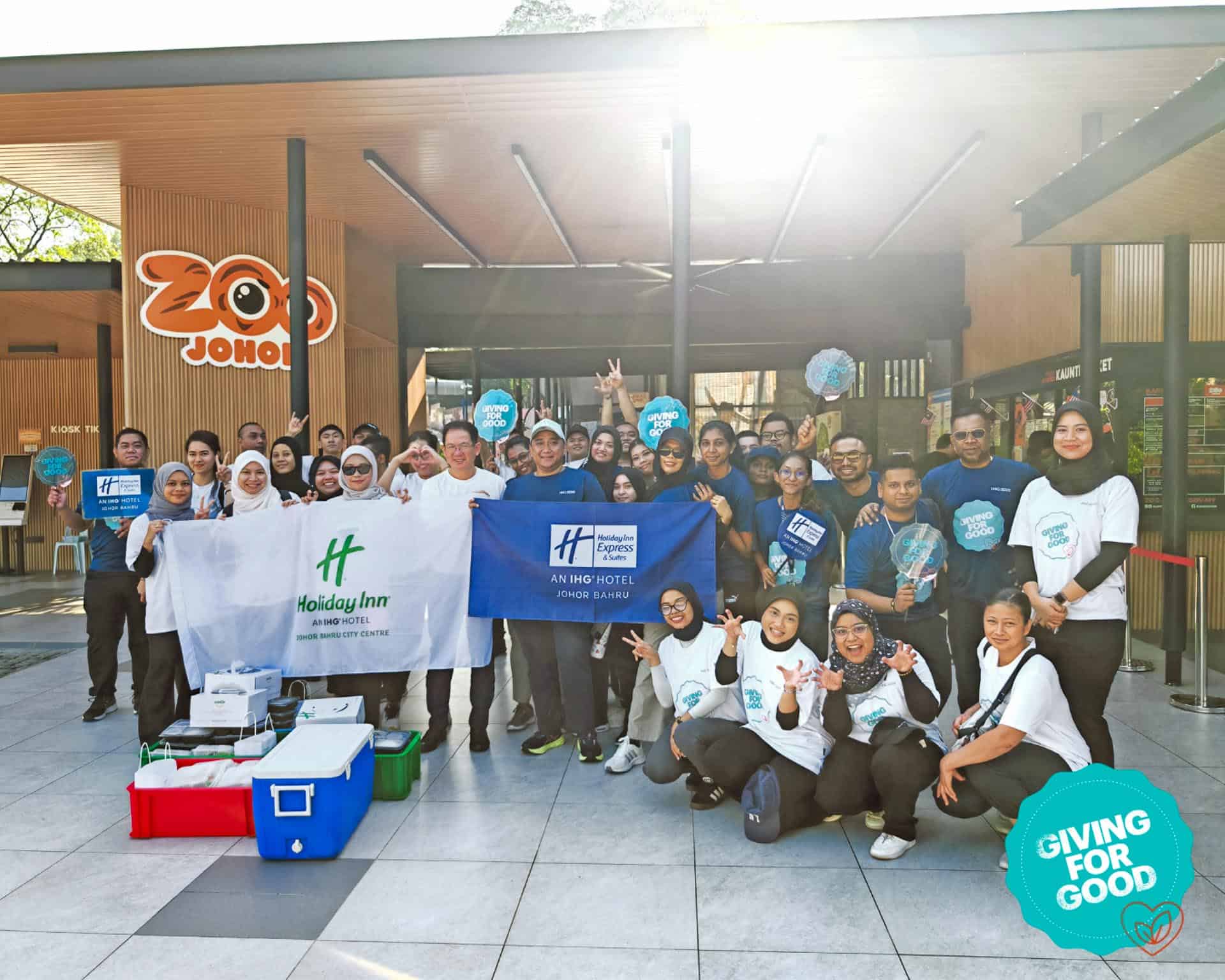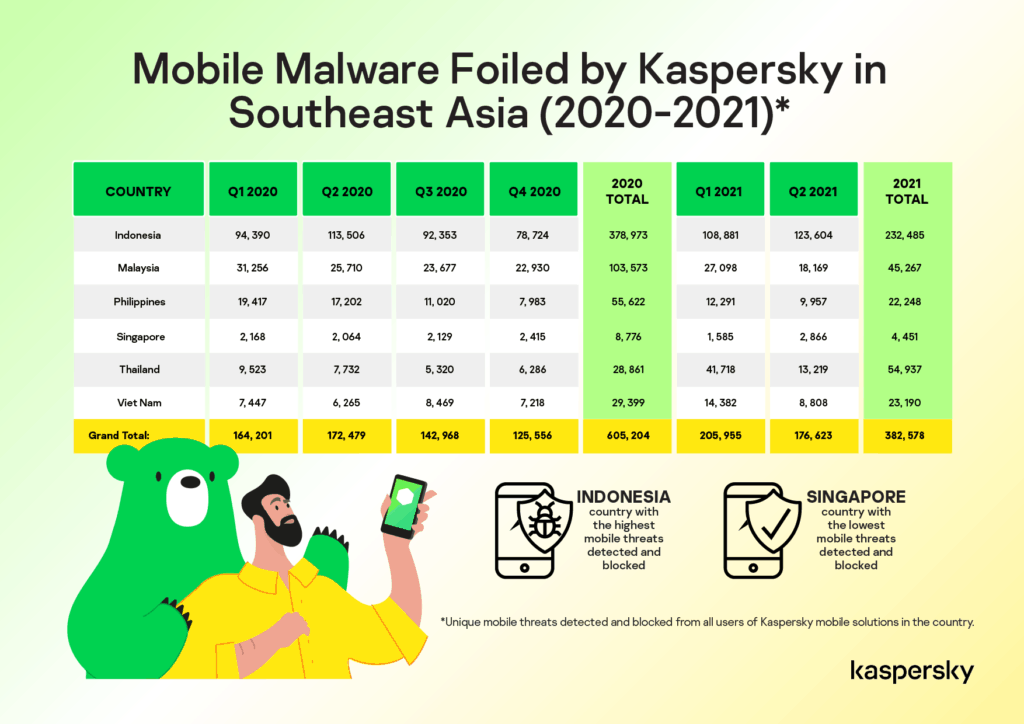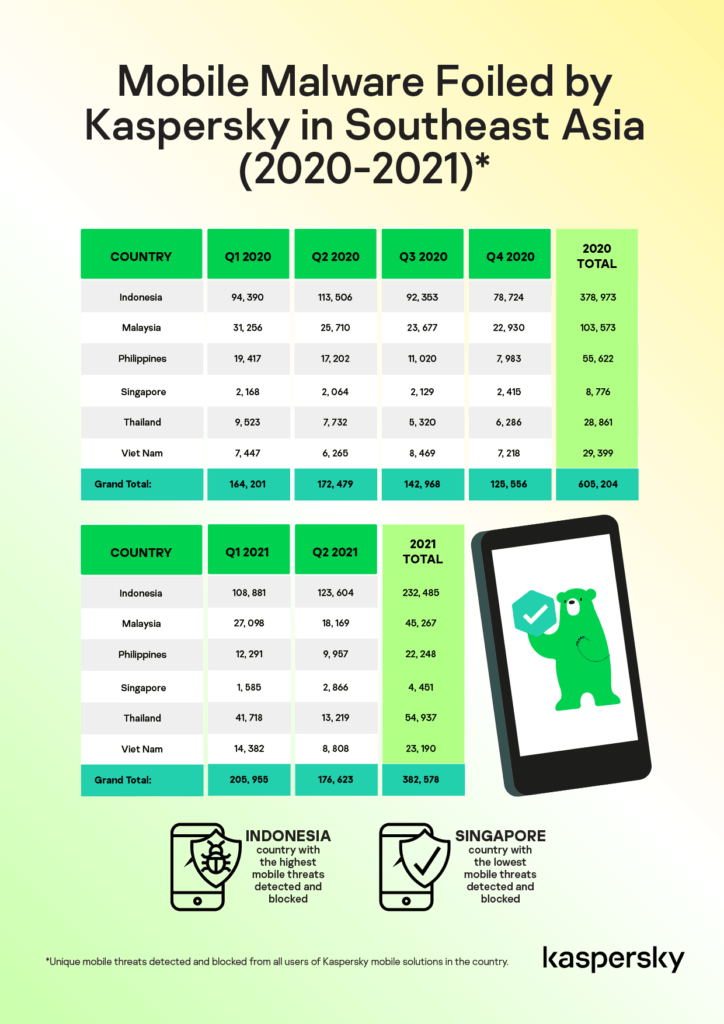
Global cybersecurity company underlines mobile threat is now a concern for enterprises and employees alike amidst the continuing remote work
23 August 2021 – As the pandemic continues to grip countries in Southeast Asia (SEA), more workers are expected to set-up their remote office environment, if not continue to work virtually. This trend keeps the population safer physically, but also open vulnerabilities against enterprises.
Global cybersecurity company Kaspersky has detected and blocked 382,578 mobile attacks against users in SEA during the first half of 2021. This is a 14% increase compared with the same period last year with 336,680 incidents. The mobile attacks detected and blocked covers the general Kaspersky users from the region.
Even though the Bring Your Own Device (BYOD) has been a trend before the pandemic, its use have increased exponentially since 2020 as companies adapted their IT infrastructure for business continuity. This, in turn, increased employee’s role in a company’s network security.
A survey done by Kaspersky last year revealed that a little more than two-thirds of respondents are using a personal device to work from home. Aside from this, employees are also using their work gadgets for personal activities such as watching video and educational content, reading news, and playing video games.
Most interestingly, 33% of the 6,017 employees surveyed worldwide last year admitted to using their office devices to watch adult content, a type of content that is often targeted by cybercriminals.
“Laptops are the main workhorse but mobile devices have also been used to access office emails and work-related systems even before the pandemic. It is a risky but a known practice that these same handsets are also being utilised for personal tasks and accessing guilty pleasures. With this trend being more rampant in a virtual home office, companies should revisit their policies, access rights, and security set-up to block cybercriminals from entering their enterprise network through infected smartphones,” comments Yeo Siang Tiong, General Manager for Southeast Asia at Kaspersky.

Mobile malware refers to malicious software specifically targeted to infect mobile devices including handsets, tablets, and other smart gadgets. While mobile malware hasn’t quite caught up to its PC counterpart in terms of volume or complexity, experts are seeing more mobile-specific malware designed to prey on smartphone features or tablet vulnerabilities.
In the continuing era of remote work, a mobile malware can steal individual’s personal data but also be a launchpad for a targeted attack against a user’s employer.
Since 2020, Kaspersky’s telemetry has been monitoring and blocking no less than a hundred thousand mobile malware attacks in SEA per quarter. The first three months of 2021 logged the highest number since last year with 205,995 detected incidents.

Indonesia logged the highest number of foiled mobile attacks from January 2020 to June 2021 followed by Malaysia and Thailand. Indonesia also ranked 3rd in terms of mobile malware detected in the second quarter of the year. Russia and Ukraine took the first and second spot while India and Turkey landed in 4th and 5th place.
In terms of the percentage of users attacked by mobile malware, 4.42% users in Malaysia were targeted during the first half of the year, followed by Thailand (4.26%) and Indonesia (2.95%). Singapore is quite close with 2.83% of mobile users almost infected by this type of threat. The Philippines (2.27%) and Vietnam (1.13%) logged the lowest percent during this period.
The three most common mobile threats in SEA include:
“Both employees and CIOs in the region are embracing the current remote work and the future hybrid environment. It has its perks but its cybersecurity loopholes should be taken considerably. BYOD is here to stay and companies should take steps to beef up their defenses. It is important to train their employees regularly, keep them informed about the latest threats online, and provide them with tools such as encrypted devices, endpoint protections and VPN. Most importantly, build a culture of trust and shared responsibility towards enterprise security,” adds Yeo.
Kaspersky experts also suggest the following tips for enterprises to better protect their networks and devices against cybercriminals:
While there is a lot of responsibility on employers to keep corporate devices and networks secure, Kaspersky is also offering the following recommendations for consumers and workers during their time at home:
On a lighter note, now can get a special discount for Employee Purchase Program, please refer to our website for more information https://www.tech-titan.com/project/kasperskyemp/ .
